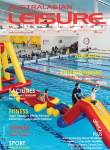UK’s Royal Horticultural Society and Landscape Institute combine to advocate against fake grass

The Royal Horticultural Society (RHS) and the Landscape Institute of the UK have partnered with the Society of Garden Designers (SGD) to tackle the “extreme environmental damage” and “decline to wildlife” caused by artificial grass and plants.
The three respected organisations have launched the ‘Say No to Plastic Grass & Plants’ campaign, calling on homeowners, gardeners and garden designers to return to traditional laws or look for alternative natural solutions “to help cut down the pollution and ecological destruction caused by plastic grass and to create more habitats for birds, bees and other wildlife”.
The Royal Horticultural Society, which hosts London's Chelsea Flower Show, last year banned artificial grass at the famous event due to its damaging effect on the environment which does not align with its ethics.
With growing interest in artificial grass in the UK, as well as around the world, the ‘Say No to Plastic Grass & Plants’ campaign “aims to debunk the claims often made by manufacturers that these products are harmless and to encourage the public to use beautiful, natural solutions instead.”
With the WWF (World Wildlife Fund)'s Living Planet Report 2022 finding that global wildlife populations have plunged by more than two-thirds (69%) over the past 50 years - with the UK ranking as one of the most nature-depleted countries in Europe - leading UK gardening groups have suggested that having a fake plastic lawn should be as socially unacceptable as blowing cigarette smoke in a baby’s face.
With the RHS hoping to inspire an approach that benefits people and planet, Mark Gush, the Society's Head of Environmental Horticulture, explained "plastic grass creates a sterile, lifeless area in the garden which has been shown to harm earthworms, exacerbate flooding risk, contribute to the heat island effect, and shed tiny plastic pieces, known as microfibres, which are harmful to the health of animals and people. By adopting a planet friendly gardening approach to design, we can help to mitigate the impact of climate change and promote biodiversity.”

Commenting on the campaign, SGD co-Chair, Lynne Marcus stated “plastic grass is far from an eco-friendly alternative to natural grass. Covering your garden with a layer of plastic has absolutely no climate benefits at all. It will suffocate the soil beneath it, destroy all sources of food and habitat and have devastating consequences for microorganisms in the soil beneath as well as the bugs and birds above. Compare that to a real lawn where a vast ecosystem of organisms, microbes, invertebrates and plant life can thrive, helping both the food chain and biodiversity, and it’s clear that there is absolutely no place on the planet for these products.”
As part of the campaign, the SGD has produced a downloadable leaflet outlining the detrimental effects the products have on the environment and offers suggestions for ‘green’ alternatives including low-mow or drought-tolerant lawns.
The campaign follows the SGD’s decision to ban advertising and sponsorship income from artificial grass and foliage suppliers in spring 2019 and the commitments the Society made in its Manifesto for Sustainable Landscape and Garden Design launched at the SGD Sustainability Symposium in 2022.
With one in 10 British households having replaced their garden’s lawn with artificial grass and it being used in sports pitches across the country, Marcus added “we want to get through to people who are thinking of putting in artificial grass that it’s as serious as not wearing a seatbelt or blowing smoke in your baby’s face.
“I find it remarkable that people think it’s not OK to get a plastic bag, but it’s OK to cover your whole garden with plastic sheeting, which is what you’re effectively doing - and destroying 1,000 years of topsoil to do it.
"We have to stop this because it’s destroying our country. It’s destroying lots of countries, but we can do something about this one.
"And now is the time to move on because the public is beginning to feel so much more protective about our wildlife."
The ‘Say No to Plastic Grass & Plants’ campaign highlights that ripping out real grass destroys the habitats on which wildlife depend, as turf contains "a vast ecosystem of organisms ... helping both the food chain and biodiversity".
Related Articles
3rd March 2023 - Australia’s conservation organisations celebrate World Wildlife Day
13th September 2022 - ASM Global appoints Australian sports turf expert for Hong Kong’s Kai Tak Sports Park
9th September 2022 - European Commission move to restrict microplastic use set to impact infill used in synthetic turf systems
25th March 2022 - New study claims flaws in processes used to justify artificial turf sports fields
24th November 2021 - CSIRO report shows devastating impact of invasive species on Australia’s biodiversity
14th June 2021 - Sydney Council to install Australia’s first ‘environmentally sensitive’ synthetic football field
15th April 2021 - NSW Planning Minister to investigate alternatives to synthetic grass
4th November 2020 - Ecotourism Australia partners with WWF Australia to support bushfire-affected tourism destinations
10th December 2019 - Synthetic Grass and Rubber Surfaces launches scheme to recycle old playground rubber surfaces
8th May 2019 - South Australian council removes ban on residents laying artificial grass on road verges
9th December 2016 - ASTM International standard for artificial turf infill
7th March 2016 - Flares damage artificial turf surface at Leichhardt’s Lambert Park
28th October 2015 - Australian Sports Turf Consultants takes ownership of Australia’s warm-season turfgrass collection
20th January 2015 - Turf Australia warns Councils against ‘faking it’ for sporting grounds
2nd December 2014 - Innovative cooling system to reduce artificial turf temperatures
14th June 2013 - Turf war over surfaces at 2015 FIFA Women’s World Cup
22nd May 2013 - Australian garden exhibit triumphs at Chelsea Flower Show
22nd January 2012 - Media ‘beat up’ artificial turf: synthetic grass
26th May 2011 - Australian garden wins gold at Chelsea Flower Show






